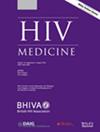Clinical staff attitudes towards opt-out consent for blood-borne virus screening in emergency departments in England
Abstract
Objective
Opt-out screening for blood-borne viruses (BBVs) in emergency departments (EDs) has been established in areas with a high prevalence of HIV diagnoses in England. This multi-site study explored the attitudes of healthcare workers (HCWs) towards BBV screening in EDs post-implementation.
Design
This was a cross-sectional electronic survey of HCWs.
Methods
Between November 2023 and February 2024, HCWs across 33 EDs in England participating in opt-out BBV screening were invited to complete a survey about the feasibility and acceptability of screening, including the opt-out consent process. Factors independently associated with acceptability of opt-out screening were identified using multivariable logistic regression. Free-text responses were analysed thematically.
Results
Responses from 610 HCWs in 19 EDs were provided: 50.4% were nurses, 43.1% doctors, and 6.5% other healthcare professionals. Acceptability of the screening programme and opt-out consent was high (90.3% and 77.7%, respectively), with some variation between EDs. Acceptability of opt-out consent was greater among doctors than among other HCWs, and among HCWs who proactively discussed screening further with patients who opted out. However, 50.8% of HCWs felt that patients should be verbally reminded at blood draw, and 44.3% of HCWs wanted more training in discussing opt-out screening with patients. Free-text answers suggested changes to test-ordering systems, including simple integration of tick boxes to document whether patients opted out and to block repeated testing.
Conclusions
There was substantial support from ED HCWs for routine opt-out ED BBV screening, including opt-out consent. Key areas suggested for improvement included changes to test-ordering systems and additional training for HCWs. Frequent preference for verbal reminders at the point of blood draw suggests continued HIV testing exceptionalism.

 求助内容:
求助内容: 应助结果提醒方式:
应助结果提醒方式:


